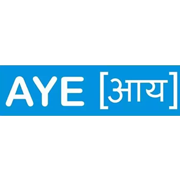IPO Dashboard
Open IPOs
2
Upcoming IPOs
36
Closed IPOs
87
IPOs listed in gains
47
IPOs listed in loss
27
| Company Name | Type | Open Date | Close Date | Issue Price | Overall subscription | |
|---|---|---|---|---|---|---|
Gaudium IVF & Women Health | Mainboard | 20 Feb 2026 | 24 Feb 2026 | ₹75 - ₹79 | 0.88x | |
Manilam Industries | SME | 20 Feb 2026 | 24 Feb 2026 | ₹65 - ₹69 | 0.20x |
| Company Name | Type | Opening Date | |
|---|---|---|---|
| Mainboard | 23 Feb 2026 | IPO Doc | |
| Mainboard | 23 Feb 2026 | IPO Doc | |
| SME | 23 Feb 2026 | IPO Doc | |
| SME | 23 Feb 2026 | IPO Doc | |
| SME | 23 Feb 2026 | IPO Doc |
| Company Name | Type | Open Date | Close Date | Listing Date | Issue Price | Listing Price | Overall subscription | Performance | Allotment Status |
|---|---|---|---|---|---|---|---|---|---|
Yashhtej Industries | SME | 18 Feb 2026 | 20 Feb 2026 | 25 Feb 2026 | ₹110.00 | -- | 1.33x | -- | Check |
Fractal Industries | SME | 16 Feb 2026 | 18 Feb 2026 | 24 Feb 2026 | ₹216.00 | -- | 5.08x | -- | Check |
Marushika Technology | SME | 12 Feb 2026 | 16 Feb 2026 | 19 Feb 2026 | ₹117.00 | ₹120.00 | 16.64x | +2.56% | Check |
Fractal Analytics | Mainboard | 09 Feb 2026 | 11 Feb 2026 | 16 Feb 2026 | ₹900.00 | ₹876.00 | 2.66x | -2.67% | Check |
Aye Finance | Mainboard | 09 Feb 2026 | 11 Feb 2026 | 16 Feb 2026 | ₹129.00 | ₹129.00 | 0.97x | +0.00% | Check |
About IPOs
What Is an IPO?
When a private limited company decides to go public for the first time, it launches an IPO or Initial Public Offering. This transitions the company from being privately held to publicly traded on a stock exchange like the BSE (Bombay Stock Exchange) or NSE (National Stock Exchange).
Why Do Companies Go Public?
- Raise Funds for Growth: A private company primarily goes public to raise funds or capital, which is used to expand operations, develop new products, or enter new markets.
- Boost Credibility and Brand Value: When a company launches its IPO, it captures widespread attention, especially if it gets significant investor interest. This ultimately enhances the brand’s reputation and attracts more customers and business partners.
- Existing Investors Can Take an Exit: Early investors, founders, and employees can sell their shares and take an exit.
- Debt Reduction: Funds raised through an IPO can be used to repay existing debts and strengthen the company’s financial position.
Who Can Apply For an IPO?
The below categories of investors are eligible to apply for an IPO.
- Retail Individual Investors (RIIs)
- High Net-Worth Individuals (HNIs)
- Qualified Institutional Buyers (QIBs)
- Anchor Investors
- Employees of the Company
How To Apply For IPO On Groww?
Applying for an IPO via Groww will take less than a minute. All you need to do is follow the below step-by-step procedure.
- Register on Groww and open a demat account (In case you don’t have one).
- Head to the IPO - Initial Public Offerings page.
- In the “Open” list of IPOs, click “Apply” for the company IPO you want to apply.
- Select your category (Regular/HNI) under “Apply as” and “Shares Lot.”
- Click “Continue.”
- Enter your UPI ID.
- Accept the terms and conditions and click “Apply For IPO.”
What Happens After Applying For IPO?
Once you have successfully applied for an IPO, the process moves through several key stages leading to the allotment and listing.
- After submitting the IPO application, an application number will be generated.
- A UPI mandate request will be sent within 24 hours, which the investor needs to authorise before the IPO closes.
- Once done, the amount will be blocked in the bank account.
- The IPO allotment is announced once the subscription window closes.
- After the allotment results are announced, you can check the allotment status online via:
- The registrar’s website (e.g., Link Intime or KFin Technologies).
- Broker’s platform
- If you don’t receive an allotment, the blocked amount will be unblocked or refunded within a week.
- For successful applicants, the allotted shares are credited to the Demat account before the company’s listing date.
- The company’s shares begin trading on the stock exchange (NSE/BSE) on the listing date. On this day, you can choose to hold the shares for the long term or sell them based on the market price.











